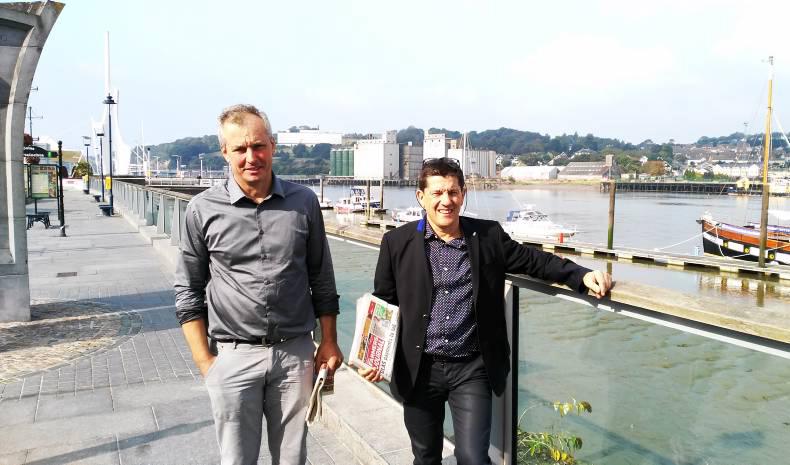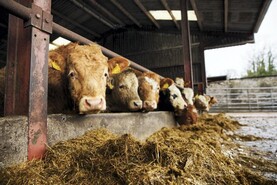Ter’elevage’s president Christophe Godet and director Jacques Chauvire were in Ireland to visit Dawn Meats in Granagh on Friday 2 October, along with 23 members of the group of farmers supplying Elivia.
Dawn has acquired 49% of Elivia, following EU approval of the deal in July. The Irish meat processor had also cleared an option to buy up to 70% of its French counterpart by 2019. The merger is a huge operation, with Dawn and Elivia each posting around €1bn in sales annually.
“French farmers are excellent at producing beef,” said Godet. “The Irish are very good at marketing products. We hope that Dawn’s investment in our factory, Elivia, will create new markets for our produce.”
Terrena: the co-op
Terrena is the co-operative that previously owned the whole of Elivia. Terrena itself is owned by 22,000 French farmers who produce chicken, pig, beef and sheep.
Acting like other co-operatives, Terrena buys fertiliser and other goods for the farmers. Factory throughput per week at Elivia is approximately 6,000 head of cattle and 2,000 head of sheep.
Ter’élevage is a producer group that represents 5,000 beef and sheep farmers that are shareholders of Terrena. Its main function is to market the farmers’ produce by negotiating on price for carcase specifications with the factories. The size of each farmer’s individual business determines how much they pay to Ter’elevage for its services.
The group accounts for 40% of French beef production and the farms cover an area in northwestern France that stretches across the Paris Basin and as far south as Bordeaux. Some 70% of Ter’elevage’s production is sold to Elivia factories. Farmers in the group are a mixture of birth to finishing and weanling to finishing.
Each different sector has a separate negotiator (ie one for each steers, bulls and lamb). Each week, they hold negotiations with the factory to set the price. Every farmer gets the same average price per kilo for their animal, according to what category and grade it falls into.
“We can set the specifications and the price for them,” said Chauvire. “They are put into a grid and this ensures that all farmers get the same price.”
Four areas of business
Ter’elevage has four separate areas of business. The first is to buy cattle; weanling bulls would be bought for approximately €800, depending on the type of animal by private sale. The second business is the transport of cattle from sale to farm and from farm to factory.
The third area is advisory: Ter’elevage’s offices are dotted all around the supply region. Advisers are employed to relay information to farmers regarding specifications and the timing of demand. The two-way system allows farmers to give the factory a better idea of the types of animals they are producing, so that specs can be adjusted accordingly.
Through this network, the factory can also tell farmers when they want cattle delivered. The Ter’elevage offices also deal with paperwork regarding traceability of animals as required under European regulations.
The president of Ter’elevage, Christophe Godet, is elected by the group’s general assembly. A farmer himself, Godet has 60 Charolais cows on a 100-acre farm just south of Nantes.
The price for a dairy animal in the factory would be approximately €2.80/kg, whereas a pedigree beef breed such as Piedmontese would fetch in the region of €5/kg.






 This is a subscriber-only article
This is a subscriber-only article










SHARING OPTIONS: